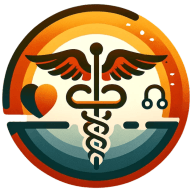In the ever-evolving world of healthcare, staying ahead of the curve is crucial. This blog post delves into the transformative power of medical practice software. We'll explore how this technology is revolutionizing healthcare, from streamlining administrative tasks to enhancing patient care. Buckle up for a deep dive into the world of medical practice software and its myriad benefits.
The Rise of Medical Practice Software
The healthcare sector has seen a significant shift in recent years. Technology is at the forefront of this change, with medical practice software leading the charge. This software is a game-changer, offering a suite of tools designed to streamline operations and improve patient care.
Medical practice software is a comprehensive solution that integrates various aspects of healthcare management. It includes electronic health records (EHRs), practice management, and billing systems. These tools work in harmony to simplify administrative tasks, enhance patient engagement, and improve overall efficiency.
EHRs, a core component of medical practice software, have transformed the way healthcare providers manage patient information. They offer a centralized platform for storing and accessing patient data, including medical history, diagnoses, medications, and treatment plans. This not only eliminates the need for cumbersome paper records but also ensures that critical information is readily available when needed.
Practice management tools, on the other hand, handle the administrative side of things. They help with scheduling appointments, managing patient records, and tracking insurance claims. By automating these tasks, medical practice software frees up healthcare providers to focus on what they do best - providing quality patient care.
The Impact on Patient Care
Medical practice software is not just about streamlining administrative tasks. It also plays a pivotal role in enhancing patient care. By providing healthcare providers with easy access to comprehensive patient data, it enables them to make informed decisions about treatment plans.
Moreover, medical practice software facilitates better communication between healthcare providers and patients. Through patient portals, individuals can access their health records, book appointments, and communicate with their doctors. This fosters a more collaborative approach to healthcare, where patients are active participants in their care.
Furthermore, medical practice software can help reduce errors in healthcare. By automating processes like prescription writing and billing, it minimizes the risk of human error. This not only improves patient safety but also enhances the overall quality of care.
The Benefits for Healthcare Providers
For healthcare providers, the benefits of medical practice software are manifold. It streamlines operations, reduces paperwork, and improves efficiency. But the advantages don't stop there.
Medical practice software also offers robust reporting capabilities. Healthcare providers can generate detailed reports on various aspects of their practice, from patient demographics to financial performance. This data can be invaluable in making strategic decisions and identifying areas for improvement.
Moreover, medical practice software can help healthcare providers comply with regulatory requirements. With features like automatic updates and audit trails, it ensures that practices stay on top of changing regulations and maintain compliance.
The Future of Medical Practice Software
The future of medical practice software looks promising. As technology continues to evolve, we can expect these tools to become even more sophisticated and powerful.
Artificial intelligence (AI) and machine learning are set to play a big role in the future of medical practice software. These technologies can help analyze patient data, predict health risks, and suggest treatment plans. This could revolutionize the way healthcare providers diagnose and treat diseases.
Telemedicine is another area where medical practice software is set to make a big impact. With the rise of virtual consultations, these tools can help healthcare providers deliver care remotely, breaking down geographical barriers and making healthcare more accessible.
Choosing the Right Medical Practice Software
With so many medical practice software options available, choosing the right one can be a daunting task. However, by considering your practice's specific needs and doing thorough research, you can find a solution that fits your requirements.
When evaluating medical practice software, consider factors like ease of use, integration capabilities, and customer support. Also, look for a solution that offers robust security features to protect patient data.
Remember, the right medical practice software can be a game-changer for your practice. It can streamline operations, improve patient care, and drive growth. So, take your time, do your homework, and choose wisely.
Overcoming Challenges in Implementing Medical Practice Software
Implementing medical practice software can be a complex process. It requires careful planning, training, and ongoing support. However, by anticipating potential challenges and addressing them proactively, you can ensure a smooth transition.
One common challenge is resistance to change. Healthcare providers may be hesitant to adopt new technology, especially if they're used to traditional methods. To overcome this, it's important to communicate the benefits of medical practice software clearly and provide adequate training.
Another challenge is data migration. Transferring patient data from old systems to new ones can be a complex and time-consuming process. However, with proper planning and the right tools, it can be done efficiently and securely.
Embracing the Power of Medical Practice Software
Medical practice software holds immense potential for transforming healthcare. It streamlines operations, enhances patient care, and offers valuable insights for healthcare providers. While implementing this technology can be challenging, the benefits far outweigh the hurdles. By embracing medical practice software, healthcare providers can stay ahead of the curve and deliver better care to their patients.

